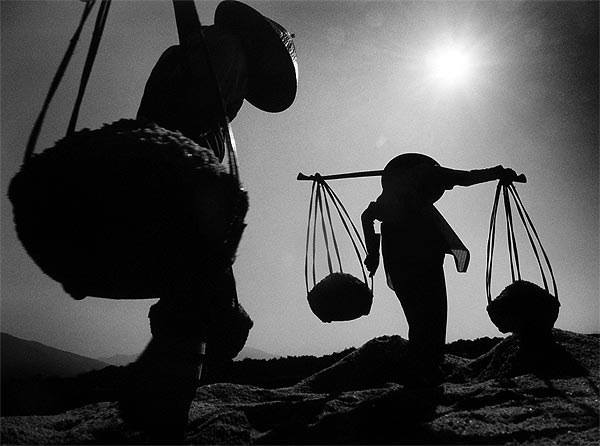Our Inner Garment
By Fr. Ron Rolheiser, OMI 2008-06-01
Many things divide us:
language, race, ethnicity, gender, religion, politics, ideology, culture,
personal history, temperament, private wounds, moral judgments. It is hard, in
the face of all this, to see people who are different from us as brothers and
sisters, as equally important citizens of this world, and as loved and valued
by God in the same way we are.
And so we often live in a certain distrust of each other. Sadly too we often demonize each other, seeing danger where there is only difference. We then either actively oppose someone or simply steer clear of him or her and caution our loved ones to stay clear as well.
Consequently we live in a world in which various groups stay away from each other: liberals and conservatives, Protestants and Catholics, Jews and Arabs, Arabs and Christians, Muslims and Buddhists, black and white races, pro-life and pro-choice groups, feminists and traditionalists, among others.
What we fail to realize is that these differences are really our outer garments, things that in the end are accidental and incidental to our real selves. What’s meant by this?
We wear more than physical clothing to cover our naked selves; we cover our nakedness too with a specific ethnicity, language, religious identity, culture, political affiliation, ideology, set of moral judgments, and a whole gamut of private wounds and indignation. These are in essence our outer garments.
But we also possess a deeper inner garment. Our real substance, identity, and capacity to act with larger hearts, lies underneath. What lies beneath our outer garments?
In the Gospel of John, at the Last Supper when he is describing Jesus washing the feet of his disciples, (in a carefully worded passage) John uses these words: "Jesus knowing that the Father had put everything into his hands, and that he had come from God and was returning to God, got up from the table, took off his outer garments and, taking a towel, wrapped it around his waist; he then poured water into a basin and began to wash his disciples’ feet and to wipe them with the towel he was wearing." (John 13, 2-5)
When John is describing Jesus "taking off his outer garment" he means more than just the stripping off of some physical clothing, some outer sash that might have gotten in the way of his stooping down and washing someone’s feet. In order to let go of the pride that blocks all human beings from stooping down to wash the feet of someone different than oneself, Jesus had to strip off a lot of outer things (pride, moral judgments, superiority, ideology, and personal dignity) so as to wear only his inner garment.
What was his inner garment? As John poetically describes it, his inner garment was precisely his knowledge that he had come from God, was going back to God, and that therefore all things were possible for him, including his washing the feet of someone whom he already knew had betrayed him.
That is also our true inner garment, the reality that lies deeper beneath our race, gender, religion, language, politics, ideology, and personal history (with all its wounds and false pride). What is most real is that deep down, beneath these other, outer, things we nurse the dark memory, the imprint, the brand of love and truth, the inchoate knowledge that, like Jesus, we too have come from God, are returning to God, and therefore are capable of doing anything, including loving and washing the feet of someone very different from ourselves. Our inner garment is the image and likeness of God inside of us.
It is only if we realize this that our world can really change because it is only then that liberals and conservatives, pro-life and pro-choice, Catholics and Protestants, Jews and Arabs, Arabs and Christians, black people and white people, men and women, and people wounded in different ways can begin to stop demonizing each other, begin to reach across to each other, begin to feel sympathy for each other, and begin, together, to build for a common good beyond our wounds and differences.
Sometimes in our better moments we already do that. Unfortunately, generally to have one of our better moments it usually takes a great sadness, a tragedy, or a death. Mostly it is only in the face of mutual helplessness and sorrow, at funeral, that we are capable of forgetting our differences, putting away our outer garments, and seeing each other as brothers and sisters.
It seems it has never been much different. In the biblical story of Job, we see that it is only when Job is completely down and out, when he is shorn of every outer thing that he can cling to, that he finally sheds his outer garment and utters the timeless line: "Naked I came from mother’s womb, and naked I go back!"
We need to be careful what kind of clothing we put on so that the pain of Job is not required to remove it.





